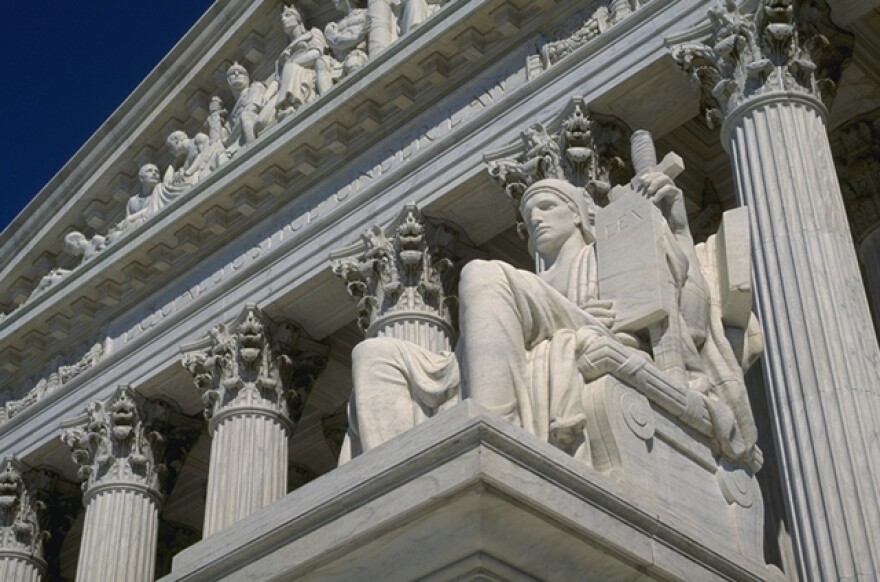The United States Supreme Court heard arguments today in the first major abortion case of the Trump Era, considering the constitutionality of a Louisiana law that would require abortion providers to have admitting privileges at a nearby hospital.
The law in question, known as the Louisiana Unsafe Abortion Protection Act, is nearly identical to a Texas law that the High Court struck down in 2016. The court ruled then that requiring doctors who perform abortions to have hospital admitting privileges didn’t make women safer, it just made it more difficult for them to access an abortion provider because so few could meet state requirements.
A lot has changed since then. President Donald Trump’s two conservative appointees — justices Neil Gorsuch and Brett Kavanaugh — have joined the court.
A ruling in favor of the Louisiana law may pave the way for more states to impose similar laws to restrict a woman’s access to an abortion, without ever outlawing the procedure.
And the reversal of such a recent precedent could open the door for legal challenges to long-standing court rulings that protect a woman’s right to an abortion, including Roe v. Wade.
Attorneys for the state of Louisiana say this case is different
“The laws are different, the facts are different, the regulatory structures are different,” Louisiana Solicitor General Liz Murrill argued on behalf of the state.
Abortion rights activists see it differently.
“This case is about respect for the court’s precedent,” Attorney Julie Rikelman of the Center for Reproductive Rights argued on behalf of Hope Medical Center.
Hospital Admitting Privileges
Admitting privileges are hard to get.
Only two of the six doctors who currently perform abortions in Louisiana have admitting privileges. If the admitting privileges requirement were to take effect, two of the three abortion clinics in the state would be shuttered. Among them is Hope Medical Group for Women in Shreveport, the clinic at the center of this case.
Hospitals rarely grant admitting privileges to outside doctors and typically, only granted to outside doctors who admit a steady stream of patients.
In the Texas case, Whole Woman’s Health v. Hellerstedt, the court reasoned that complications with abortion procedures are “extremely rare,” and when they do occur, patients are readily admitted and treated by hospital staff.
On Wednesday, Justice Elena Kagan pointed out that the Shreveport clinic reported transferring only four patients out of the roughly 70,000 it had treated to a hospital over the last 23 years.
“Third-Party Standing”
Another important legal question raised by the case is who has the right to represent the interests of women seeking abortions, a right the court refers to as “third party standing.”
The court agreed Wednesday to address that question in its ruling on this case.
For decades clinics have had the ability to challenge abortion restrictions on behalf of their patients. Attorneys for the clinics argue that individual patients would have no way of knowing that they were turned away because of staffing shortages brought on by state regulations. Furthermore, individuals who pursue these cases in court would be subject to intense public scrutiny, a likely chilling effect.
But the state is arguing that abortion providers do not have the same interests as patients, and should not be allowed to sue on their behalf. They say that the admitting privileges law is intended to protect women from unsafe providers, and that clinics fighting for less regulation represents a clear conflict of interest.
What might happen?
The High Court did not issue a ruling today — that isn’t expected until June. Instead, each side had 30 minutes to argue its case, and justices asked questions.
Those questions often serve as an early indicator of how a particular justice might vote on a case, and on Wednesday, all eyes were on Chief Justice John Roberts.
Roberts is believed to be the new “swing vote” on abortion cases, but he did not say enough during the oral arguments to show where he stands.
Last year, Roberts voted with the four liberals on the court to block the Louisiana law after a lower court ruling would have allowed it to take effect.



